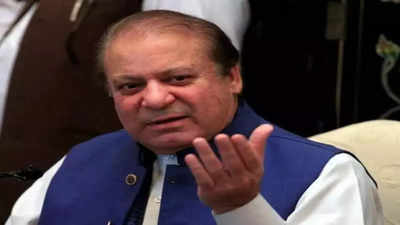
As Pakistan’s next Prime Minister gets ready to take over, the biggest challenge facing him and his government will be Pakistan’s continued state of deep economic turmoil featuring a balance-of-payments crisis, high fiscal deficit, elevated inflation, unsustainable debt, low investments and a shrinking economy. Will the Prime Minister be able to deal with this existential crisis?
As an editorial in Dawn noted, “the reasons for the current upheaval range from defective fiscal and economic policies, and the global energy and commodity price spiral post-Covid, to the destructive floods of 2022. The political instability, ongoing since the 2022 ouster of the PTI, has only aggravated the economic tumult, with the country narrowly dodging a default last summer after being thrown an emergency lifeline by the IMF.”
That the incoming minority coalition government faces huge challenge was acknowledged by former prime minister Nawaz Sharif when he warned his party’s elected lawmakers that the next two years would be challenging for the new administration due to economic and political uncertainty. “There is consensus that negotiating a new extended programme with the IMF — and quickly — to replace the existing interim facility will be the incoming finance minister’s most urgent challenge. The successor IMF bailout is critical for external sector stability and to unlock loans from other creditors at one of the toughest points in Pakistan’s history.”
The Dawn Editorial noted, “without an extended package from the global lender, it would be near impossible to fill the huge annual financing gap of at least $25bn over the next several years. The IMF will likely extend help but not unless the authorities commit to further belt-tightening steps needed for the country to stay on the path to recovery. The programme goals might prove extremely unpopular because they would limit the government’s options to provide relief to the inflation-stricken people, or even please the investors looking for support to spur growth.”
The toughest goal for the finance minister pertains to a large reduction in the fiscal deficit. “This is going to be the hardest of all reforms as it would require the finance minister to effectively tax his party’s core constituencies: retail, real estate and large farmers, as well as do away with the wasteful expenditure on public sector businesses like PIA and eliminate energy and other subsidies to powerful business lobbies.”
However, as the Dawn editorial warned “If the country is to be pulled back from the brink, the incoming finance team will have to prioritise economic decisions over political considerations and personal whims.”
![]()





